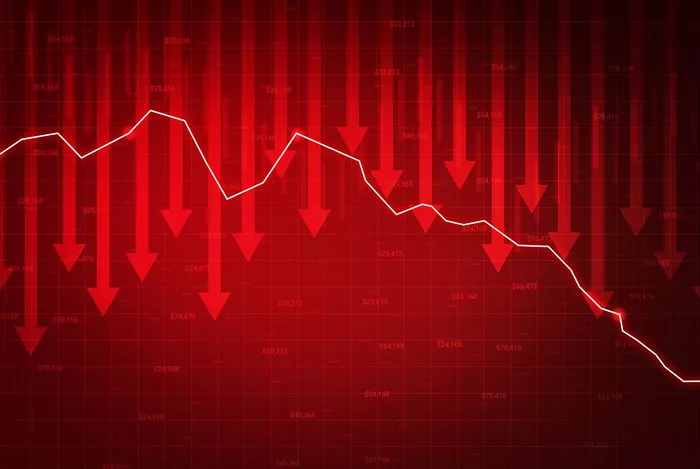An auction market is a mechanism for buying and selling stocks, where buyers and sellers submit bids and offers to determine the price of a particular stock. Auction markets, such as the New York Stock Exchange (NYSE) or the Tokyo Stock Exchange (TSE), play a pivotal role in ensuring that stock prices are established in a transparent, fair, and competitive manner. This article will explain how to buy and sell stocks through an auction market, the process involved, and the benefits and challenges of participating in this type of market.
What Is an Auction Market?
An auction market is a type of marketplace where buyers and sellers come together to trade assets like stocks, bonds, and commodities. In an auction market, buyers bid on the price they are willing to pay, while sellers offer the price they are willing to accept. The auction system helps to establish a fair and transparent price based on supply and demand.
In the case of stocks, the auction market works by matching buy orders (bids) with sell orders (asks or offers) to determine the transaction price. The goal is to achieve an equilibrium price where the number of shares buyers want to purchase matches the number of shares sellers want to sell.
How Auction Markets Work for Stocks
Auction markets typically operate in two main phases:
Pre-market Phase: This is the period before the market officially opens. During this time, buyers and sellers can place orders for the stocks they want to trade. These orders are then compiled to create a collective view of the demand and supply for a particular stock.
Market Opening and Continuous Auctioning: When the market officially opens, the orders from the pre-market phase are matched, and the first price (opening price) is determined. After the opening, stocks continue to be bought and sold throughout the trading day as new orders are placed.
In an auction market, there are typically two key types of orders:
Market Orders: These are orders to buy or sell a stock at the best available price. A market order guarantees a transaction, but not the price.
Limit Orders: These are orders to buy or sell a stock at a specific price or better. A limit order does not guarantee a transaction, as it may not be executed if the price conditions are not met.
Types of Auction Markets for Stocks
There are different types of auction markets depending on the platform and geographic location. The most notable types include:
1. Open Outcry Auction Market
This is the traditional form of an auction market, where traders meet on the exchange floor and shout out their bids and offers. Although open outcry trading has become less common with the rise of electronic trading, it is still used in some exchanges for certain commodities or stocks.
2. Electronic Auction Markets
Many modern exchanges operate through electronic auction systems. In these markets, orders are placed and matched by computers, which automatically match buy and sell orders. Examples of such exchanges include the NASDAQ and other digital platforms.
3. Hybrid Markets
Some exchanges operate hybrid models that combine elements of open outcry and electronic trading. These hybrid systems allow for both physical trading on the exchange floor and electronic order matching, providing a more flexible trading environment.
Steps to Buy and Sell Stocks in an Auction Market
Investing in stocks through an auction market involves a series of steps, from placing an order to executing a trade. Below is an overview of the process for buying and selling stocks in an auction market.
Step 1: Choose a Brokerage Account
To access the auction market, investors need to have a brokerage account. A brokerage account allows individuals to place orders to buy and sell stocks on an exchange. Investors can choose from a variety of online brokers, including full-service brokers, discount brokers, and robo-advisors.
When choosing a broker, consider factors such as fees, trading platforms, available tools, and customer service.
Step 2: Fund Your Account
Once you have selected a broker, you will need to deposit funds into your brokerage account to execute trades. The funding process usually involves linking your bank account to the brokerage account and transferring money electronically. Some brokers also allow wire transfers or checks.
Step 3: Research Stocks and Create a Trading Plan
Before placing an order, it is crucial to research the stocks you are interested in buying or selling. This involves analyzing the company’s fundamentals, performance, and market conditions. Tools such as financial reports, charts, and expert recommendations can help you make an informed decision.
Additionally, creating a trading plan is essential. Your plan should outline your investment goals, risk tolerance, and trading strategy (e.g., whether you intend to buy for the long-term or day trade).
Step 4: Place a Market or Limit Order
Once you’ve decided on the stock you wish to buy or sell, you can place an order through your broker. There are two main types of orders:
Market Orders: A market order is the simplest type of order. It instructs the broker to buy or sell the stock at the best available price. Market orders are executed immediately, ensuring that a transaction occurs. However, the price may vary slightly from the quoted price due to market fluctuations.
Limit Orders: A limit order is an instruction to buy or sell a stock at a specific price or better. For example, you can place a limit buy order at a price lower than the current market price, and the order will only be executed if the stock price falls to your specified price.
Step 5: Order Matching and Execution
Once you place an order, the auction market’s order matching system will attempt to match your buy or sell order with the corresponding opposite order. If you placed a market order, your order will be matched with the best available price. If you placed a limit order, your order will remain in the system until the price conditions are met.
When an order is matched, the transaction is executed, and the trade is finalized. If you purchased a stock, it will appear in your brokerage account, and if you sold a stock, the proceeds from the sale will be credited to your account.
Step 6: Monitor and Adjust Your Orders
In an auction market, prices fluctuate throughout the trading day. It’s important to monitor your orders and adjust them as needed. For example, if the stock price moves in your favor, you might want to modify your limit orders to lock in a profit. On the other hand, if the market conditions change, you may need to cancel or revise your orders to manage risk.
Step 7: Settlement and Confirmation
After a trade is executed, it is settled, which means that ownership of the stock is officially transferred from the seller to the buyer. The settlement process may take a few days, depending on the type of security and market rules.
You will receive a trade confirmation from your broker, outlining the details of the transaction, such as the price, quantity, and fees.
Advantages of Auction Market Trading
There are several advantages to trading in an auction market, making it an attractive option for investors.
1. Price Transparency
Auction markets are known for their transparency. Since prices are determined through a public bidding process, buyers and sellers can see the prices at which transactions are being made. This transparency helps ensure a fair and equitable market for all participants.
2. Fair Price Discovery
In an auction market, prices are determined by supply and demand. If there is more demand for a stock than there is supply, the price will rise. Conversely, if there is more supply than demand, the price will fall. This efficient price discovery mechanism helps ensure that the market price of a stock reflects its true value based on market conditions.
3. Liquidity
Auction markets generally provide high levels of liquidity. This means that there are usually enough buyers and sellers in the market to facilitate the execution of trades. The presence of liquidity helps ensure that investors can easily enter and exit positions without significant price fluctuations.
4. Regulation and Oversight
Auction markets are heavily regulated by financial authorities to ensure that the market operates fairly and efficiently. In the United States, for example, the Securities and Exchange Commission (SEC) oversees the operations of major stock exchanges like the NYSE and NASDAQ.
5. Access to Global Markets
With the advent of electronic auction markets, investors now have access to global exchanges and can trade stocks from all over the world. This opens up a wealth of opportunities for diversification and capitalizing on growth in international markets.
Challenges of Auction Market Trading
While auction markets offer several advantages, they also come with some challenges that investors should consider.
1. Market Volatility
Auction markets can experience volatility, especially during times of economic uncertainty or major events. Rapid fluctuations in prices may result in unexpected losses if investors are not prepared.
2. Execution Delays
Although auction markets are generally efficient, large orders can sometimes experience delays in execution, especially if the stock is not highly liquid. This is particularly true in electronic auction markets, where matching algorithms can take time to find the best match.
3. High Transaction Costs
Some auction markets, particularly those that still use open outcry systems, can involve higher transaction costs due to the involvement of brokers and intermediaries. Additionally, trading fees can add up if you are executing multiple trades in a day.
4. Complexity for Beginners
For new investors, auction market systems may seem complex due to the wide array of orders, bids, and offers. Understanding the nuances of market and limit orders, order matching, and price discovery can take time.
Conclusion
Buying and selling stocks through an auction market is a dynamic and transparent process that relies on the principles of supply and demand to determine stock prices. The auction market system is widely used by investors and traders due to its ability to offer price discovery, liquidity, and fair transactions. However, investors must carefully consider market conditions, their investment strategies, and risk tolerance before participating in auction markets. By understanding how these markets function and the steps involved, you can effectively engage in the auction process to buy and sell stocks in a way that aligns with your financial goals.
Related topics:

































